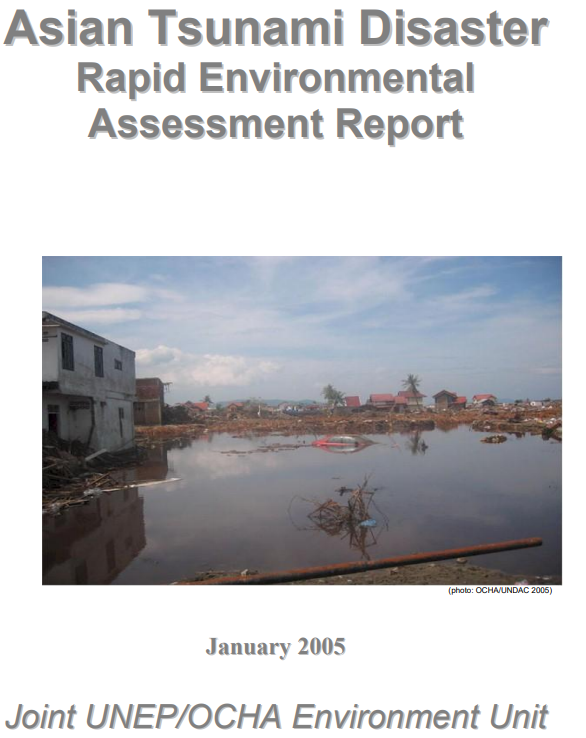This mission  report describes the Rapid Environmental Assessments (REA) undertaken by experts deployed by the UN Environment/OCHA Joint Unit in Sri Lanka, the Maldives and Indonesia following a tsunami in the Indian Ocean in 2004.
report describes the Rapid Environmental Assessments (REA) undertaken by experts deployed by the UN Environment/OCHA Joint Unit in Sri Lanka, the Maldives and Indonesia following a tsunami in the Indian Ocean in 2004.
In the aftermath of the tsunami disaster, the JEU mobilized and supported the environmental experts in United Nations Disaster Assessment and Coordination (UNDAC) teams in Sri Lanka, Maldives, and Indonesia. The experts carried out rapid environmental assessments to identify acute environmental issues with immediate impacts on human welfare and response efforts. The major environmental and human health concerns included waste management, sanitation and sewage issues. The enormous amounts of waste and debris resulting from the tsunami needed to be managed in an environmental and sustainable manner. As a result, the identification of proper landfills, the clearing, sorting and recycling of the debris were identified as priority activities. In Sri Lanka and Indonesia, UNDAC environmental experts enabled the rapid implementation of waste management pilot projects to reduce the waste and debris through recycling.
The rapid environmental assessments also found that sanitation and sewage systems were severely damaged, causing health risks, in particular in resettlements camps where people were provided emergency shelter. As a result, the JEU, along with other partners, developed guidance material to reduce environmental risks in settlements for displaced people in Sri Lanka.
Consult the mission report here.